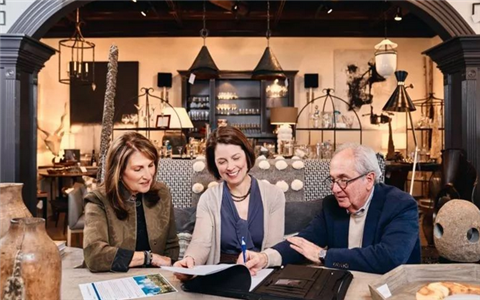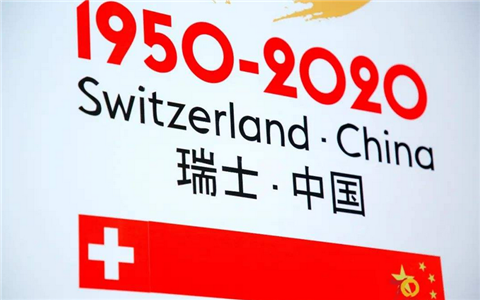 Future is Now《传承宝典》40——积极肩负家族财富的责任(下)
Future is Now《传承宝典》40——积极肩负家族财富的责任(下)
Future is Now《传承宝典》40 ——积极肩负家族财富的责任(下) 声明 本文内容来自Stonehage Fleming,由雷梭勒家族办公室编译整理,版权归原作者所有 导读:社会资本是文化资本的实际应用,能够让富裕家族融入生活和居住的社区。所以当谈到责任的时候,家族承担责任的目的是什么就非常重要了。对于企业家来说,不论是向公司投入资金、善待员工、尊重环境,还是支持当地、全国乃至全球的志愿服务与慈善事业,都能很好地展现责任担当,创造积极的社会影响。新冠疫情期间,已经能看到很多富裕家庭都做出了卓越贡献。 责任与社会资本 威斯敏斯特公爵家族名下的的格罗夫纳地产公司在疫情期间捐助了1250万英镑给英国国家医疗服务体系(NHS)、医学研究与发展机构以及帮助国家长期恢复的慈善机构。他在采访时提到了NHS员工和其他关键工作人员在疫情下受到的冲击:“他们也有自己的家庭和孩子,他们的健康和生活也在被疫情影响。他们在保证我们的健康,我希望我们也能够尽自己所能,保护他们和他们的家人。” 这个例子非常典型,富裕家庭拥有统一的价值观念,社会资本与家族宪章保持一致。很多富裕家庭对家族理念的态度非常谨慎,对于他们来说,让民众了解其参与的慈善活动有助于其公众形象的设立,也能展现其对社会的责任。认识到家族声誉与社会奉献的关系,逐渐成为富裕家庭越来越需要关注的事情。上述观点的例证数不胜数。有的家庭对于社会的回报不仅限于商业领域,而是采用了较为少见的方式,真正花时间成为医疗健康服务志愿者,帮助分发食物或者陪伴孤寡人群。现在,这些慈善行为应该融入到家族日常行为当中,成为家族社会资本战略的一部分。这样不仅有利于当地社区的发展,家族本身也能在实践中体会到积极的反馈和充实的生活。家族成员会在过程中更加了解自己,利用社会资本实现自己的目标,充分展现自己的社会责任。 责任与智力资本 一个家庭拥有越多的知识和经验,越能理解如何运用知识和影响力造福社会。脱离“真实”世界不利于富裕家庭建立对社会发展的责任感,而强调责任重要性的工具中,教育就是其中之一。富裕家庭往往更关注其智力资本的发展,会让家庭成员参加教育项目,有利于新一代年轻人形成明确清晰的世界观。传统教育启发学生认识历史和政治在社会发展中的重要作用,看清民众对于富裕阶层的态度。但是往往是非传统教育让人们理解到财富带来了怎样的责任。在过去,富裕家庭的子女教育往往集中在金融领域。但是现如今,在目的论的影响下,下一代的教育范围必须更加广泛,教会年轻人什么是责任,如何打理社交媒体上自己的形象,或者利用家族“品牌”聪明地运用影响力。 新冠疫情也让我们学习到重要一课——智力资本。疫情下,社会阶层、经济不平等问题更加显现,但同时也让人们团结在一起。家庭成员可以借此机会聚在一起,共同调整自己的观念,分享其在不同场合下获取的知识。和世界信息保持同步,有利于新一代家族接班人看清未来有什么在迎接他们,做好准备承担未来所需扮演角色的责任。这些家庭的家族办公室先发制人,首先提出了“新一代”教育项目,已经成功地培养起一些年轻家庭成员承担责任的意识。这些教育项目需要与时俱进,适应快速发展的社会和文化环境。 责任与金融资本 富裕家庭如果能够运用金融资本更好的承担社会责任,会带来非常巨大的影响。富裕家庭作为投资者,有可能积极改善商业与环境、社区、股东的关系。除通过财富方式回馈社会外,社会责任投资(SRI)也是富裕家庭参与和创造社会与环境福利的方式之一。富裕阶层可以与其顾问一起,创建符合环境、社会、治理(ESG)标准的投资组合。SRI的福利已经非常明显,ESG也正在逐渐发挥作用。疫情时期,从事商业时若不注重社会责任,会招致更加严格的公众监督,甚至会影响到自身股票价格。慈善事业一直是很多富裕家庭关心的内容。形成一致的财富目的,有助于家族完成慈善决策。目的达成统一后,家族可以在金融资本运作的过程中体现其价值观,并同时参与到社会资本项目中。部分评论家对于慈善持有怀疑的态度,质疑慈善资金并不是财富再分配的过程,社会也不会因此更加平等。他们担心慈善家更愿意支持“精英”事业,比如艺术或教育领域。确实,慈善事业也是财富的影响力之一,但是如果说慈善事业是完全同情心、没有想象力、没有责任感也是很不公平的。 肩负责任——战略的福利 每个富裕家庭都需要将确定财富的目标提上制定的战略日程。家族成员可以从中获益,培养起长期的责任感和意识感,同时也会对带动社会发展产生正向的连锁反应。拥抱财富带来的责任的最好方式就是让家族成员的每个行动都充分体现家族目的。这样家族就可以掌握自己行动的话语权。他们可以与家族顾问坐下来谈谈,如何在资本的四大支柱下确立财富的目标,帮助家族确立集体信仰。领导力恰如其分,有助于家族承担起文化责任,确保社会责任感融入到每位现有家族成员和未来接班人的脑海中。 如今,富裕阶层担任领袖位置的机会真实可触,只要能够合理运用财富的影响力。目前社会中,人们对于不平等现象和环境可持续等问题已经产生了集体的道德意识,尤其是新一代年轻人。现有家族成员需充分利用这股力量,发挥榜样的作用,肩负起自己的责任。 Original English Texts Responsibility and Social Capital Social capital is the practical application of a family’s cultural capital – the way a family relates to and engages with the communities they live and operate in. When it comes to responsibility, the concept of purpose is again key. For business owners, investing in their business, treating staff well, respecting the environment and supporting voluntary and charitable initiatives in the local, national and even international community are great ways of demonstrating that they take their responsibilities seriously and seek to make a meaningful impact. We have seen a number of exceptional initiatives by families through the Covid-19 pandemic. The Duke of Westminster’s Grosvenor Estate donated £12.5m to support the NHS, medical research and development, and charities helping the nation’s long-term recovery from the coronavirus pandemic. He spoke about the wider impact of the crisis on NHS staff and keyworkers: “They have children and families whose health and wellbeing will also be highly impacted by this crisis. As they keep us safe, I want to help provide as much support to them and their families as we can.” This is an interesting example of a family, which has an agreed set of values, living out that social capital in accordance with an agreed constitution. Many prefer to be discreet with their philanthropy. The decision here to talk publicly about specific charitable initiatives may be recognition that demonstrating responsibility to society, and recognising its relationship to their reputation, is increasingly important to wealthy families. Examples like this are supported by many other families, who may no longer have an operating business, but have offered their time in less formal ways. These include volunteering for health services, delivering food or simply keeping company with isolated people. Now is the time to embed these behaviours and weave them into a family’s social capital strategy. Not only will it make a positive contribution to local communities, but families also find these experiences positive and fulfilling. They learn a lot about themselves while confirming their purpose through social capital – a clear demonstration of responsibility. Responsibility and Intellectual Capital The greater the knowledge and experience a family can bring to bear, the greater it will understand how to use its influence for good. Being out of touch with the ‘real’ world is the biggest risk to a family building a sense of its commitment to the advancement of society. Education is one of the most important tools in addressing that. Focusing on developing a family’s intellectual capital through a programme of education for its members is crucial to maintaining a clear perspective on the world. Traditional education is instructive in looking at how history and politics intertwine to explain changes in societies and those societies’ attitudes towards the wealthy. It is often non-traditional education, however, that makes the difference in gaining a real understanding of the responsibilities that wealth brings. In the past, educating the children of wealthy families often focused on finance. Today, to be fit for purpose, next generation programmes need to be far broader, teaching younger people about their obligations, whether it be how to manage their social media profiles or use the family ‘brand’ to employ their influence wisely. Covid-19 has taught us lessons here too. As well as highlighting deep divisions and economic disparities in society, the crisis has also brought people together. Families can use this opportunity to tune their perspective and build on the knowledge they have gained of others in different circumstances. Staying in touch with what is happening in the world prepares the next generation for what lies ahead for them, bringing a sense of responsibility to whatever role they take on next. Those family offices that proactively addressed the need for a broader ‘Next Gen’ education programme early on have been successful in instilling a greater sense of responsibility in younger family members. These initiatives should evolve over time, to keep pace with the changing social and cultural landscape. Responsibility and Financial Capital Wealthy families have a huge opportunity to make a difference to societies through deploying their financial capital responsibly. As investors, families can effect positive change in the way businesses engage with the environment, communities and their shareholders. Socially Responsible Investing (SRI) is one way in which families can encourage and generate specific social or environmental benefits in addition to financial return. They may also work with their advisers to build a portfolio that fits with environmental, social and governance (ESG) criteria. SRI has already had real influence, while ESG is starting to take meaningful effect. Businesses that have not behaved responsibly during the coronavirus crisis have been the subject of increased scrutiny, often influencing their share prices if publically quoted. When it comes to philanthropy, families have an opportunity to be involved in a cause they care about. Agreeing a purpose for the wealth helps the process of deciding what that is. It demonstrates commitment to their values, via financial capital, while being involved as part of social capital initiatives. Some commentators are sceptical about philanthropy, questioning the assumption that it automatically results in the appropriate redistribution of wealth. Often, they fear, philanthropists are too inclined to support ‘elite’ causes like the arts or edu...

 关于家族传承和家族信托的思考
关于家族传承和家族信托的思考
 Future is Now《传承宝典》40——积极肩负家族财富的责任(下)
Future is Now《传承宝典》40——积极肩负家族财富的责任(下)
 瑞士庆祝同中国建交70周年
瑞士庆祝同中国建交70周年
 关于家族接班人培养的一些思考
关于家族接班人培养的一些思考